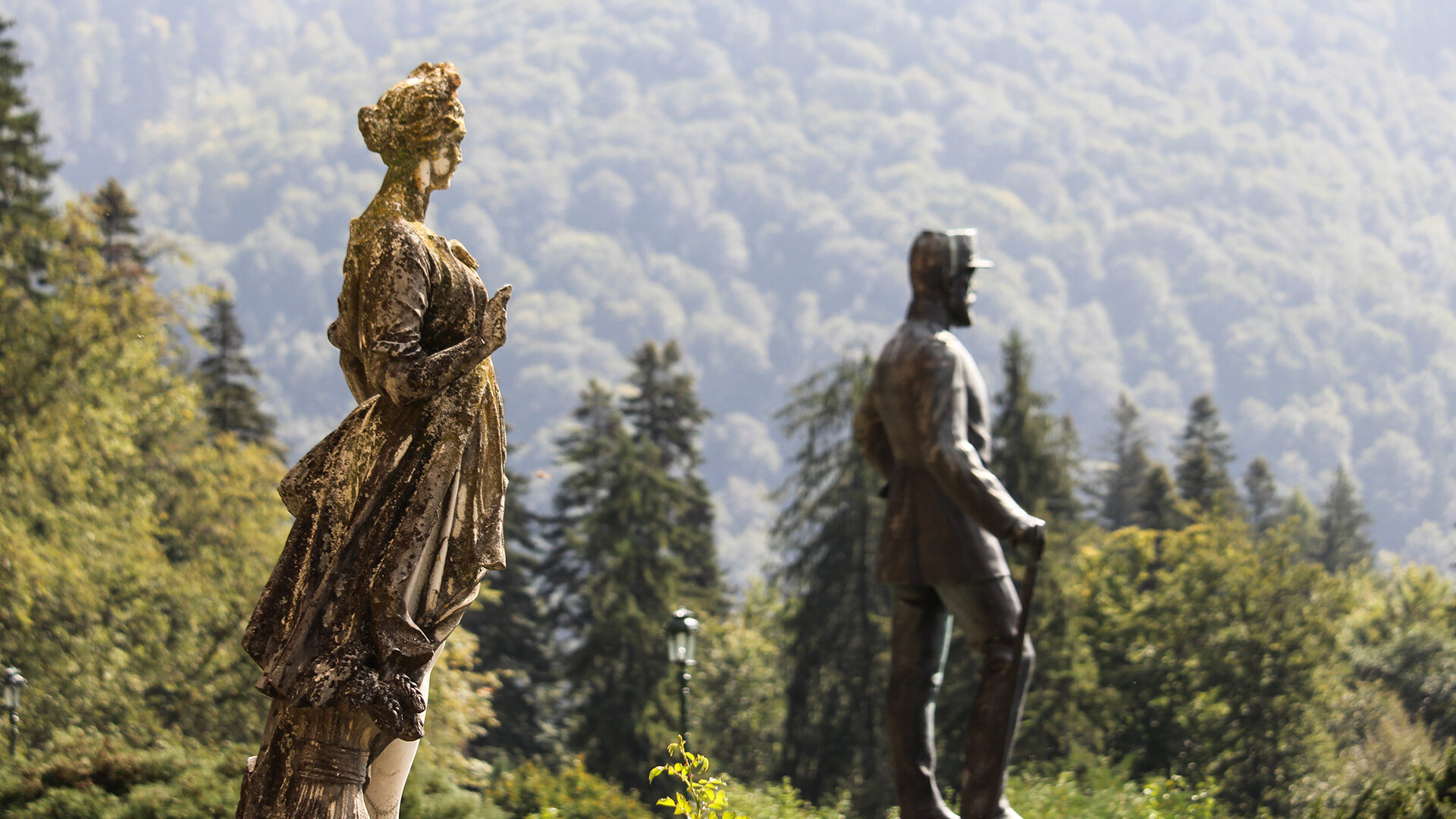A leaf blower is a strange object to base a poetry collection around, one might think. It is not beautiful, it is not a part of any regular person’s life for more than an afternoon each summer. I have certainly never had opportunity nor the desire to ever write about one before now. But, in comes Thom Schramm’s collection “The Leaf Blower” (Blue Cubicle Press, $2.50).
Over the course of this collection I found myself not only accepting the multiple roles this humble machine plays, but celebrating its versatility. The leaf blower is the man himself who clears the leaves as part of his community service, it’s the machine which has become an extension of his self and being, it’s a weapon to puff up “a lawyer’s necktie with impunity” and an enemy, destined to make sure that the only evidence for all the man’s hard work is empty space.
The collection of 21 short gut-punches of poetry tells the story of a lone leaf blower who must clear the leaves from the courthouse grounds. Moving through the pieces, though we learn little of what the man has done to earn this punishment, we see him travel through multiple versions of himself, each trying to discover what it is that’s important and each trying to fully understand what it means to be the eponymous leaf blower.
In “The Leaf Blower Argues,” written entirely in italics, he confronts the problem head on. “I can’t make my work make sense / to anyone,” he says. “If the judge came here / to check the lawn, he’d pause / and think I hadn’t done a thing.”
“The Leaf Blower” gives us many moments like this, which at once expertly reveal the growing tension building up in our protagonist and his battle to be fulfilled. At times like these, we are shown glimpses of the larger truth: when looking at a human life, it is the absences that are most apparent. The bare surface of that person is often all someone can see, unable to see the lifetime’s worth of work and toil hidden underneath.
Each short poem bombards the reader with subtle instances that make one’s stomach churn with empathy and compassion for our struggling anti-hero. There are times when he punches the breeze which has upset the leaf piles he has been gathering, before turning the act of violence into a limbering stretch. He mutters complaints about his fate, which are lost to the loud motor of the blower. He falls hopelessly into reveries about women in twirling skirts, only to be brought tumbling back to reality when someone litters his sidewalks with leaflets. His only sanctuaries are distraction and finding small ways of creating art in the shapes the leaves make when they come together.
Indeed, in a work predominantly about blowing leaves, Schramm has taken full advantage of the range of colors and images at hand. To some, reading about leaves being blown might be akin to reading about paint drying, but the poet here has done what few can and looked beyond the ordinary to extrapolate the beauty lying in plain sight. “He formed a salmon with red leaves / and might have blown it on a course / for water, but his motor seized.” Is any more information needed to show the humanity, the small quirks that flow from this anonymous character?
The character is so quietly portrayed, so carefully placed into his world, even when we learn he has lost his job because the mayor thinks that the lack of leaves means the leaf blower is a dispensable position. At this moment (which comes near the end of the collection) the emotional through-line of the work never rises or drops, but simply stays on course.
It is impossible to feel sorrow or suspense in this sudden tragedy because the collection has done so much work to paint the leaf blower’s life as the eye of a storm, one that represents a greater, hidden force. He does not lash out or experience heightened feeling in anything more than fleeting, inconsequential flicks of his leaf blower. Once he is deprived of his weapon, his third arm, he is no longer the man we know, and no longer capable of acting out at the world. He is “powerless” and resorts to simply “kick[ing] / the leaves across the district.” These actions show more than any outburst could.
Inevitably, the leaves start to pile up again. He is reinstated as the town’s leaf blower, yet there remains a sense that this narrative is sending him down a path of doom. Because “The Leaf Blower” is not a collection about the leaf blower himself, or the dignity of his work, but about the shared desire to find meaning in life and one’s place in the world. The leaf blower has found his.
Even if it is not ideal – at the very last moment, when he goes to say hello to the woman doing Tai Chi, it hails and sends her running – he does not despair. As he revs up his leaf blower with his head lowered, it is not defeat that we see, but acceptance. Even if he is resigned to being the leaf lower, it is something that he finds solace in.
And what more does a person really need but a purpose to cure the disappointments in life?
Josh King received his MFA from Adelphi University in New York, and moved from the UK in 2014. He divides his time between writing fiction and sampling the New York literary scene. He also writes a column for London’s Litro Magazine.



0 comments on “Thom Schramm’s The Leaf Blower: Love, Loss and Leaves”